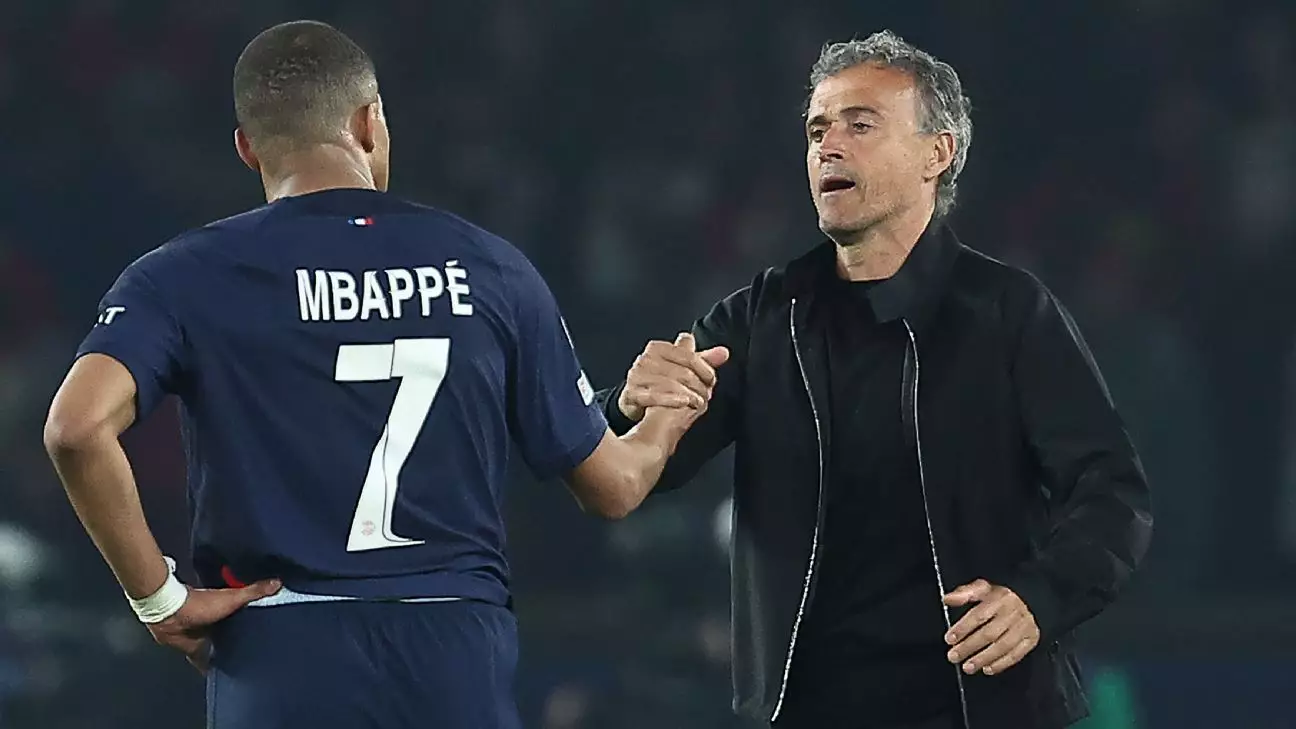The landscape of Paris Saint-Germain (PSG) has undergone a seismic shift with the recent departures of its iconic stars, Neymar, Lionel Messi, and Kylian Mbappé. Now, under the stewardship of coach Luis Enrique, the club is pivoting from a singular reliance on individual brilliance to a more holistic team-oriented approach. In a landscape previously dominated by superstars, PSG’s current trajectory may herald a profound transformation in how we conceptualize success in contemporary football.
During his post-match comments following PSG’s narrow victory over Girona in the Champions League, Enrique emphasized that the team’s true ‘star’ is its collective dynamism. By asserting that “the team is the star,” he is promoting a philosophy that champions unity, resilience, and cooperation on the pitch. This notion serves as a powerful counter-narrative to the modern football obsession with individual accolades. Enrique aims to instill a sense of camaraderie among his players, encouraging them to adopt the ethos of “one for all and all for one.” This perspective is well-suited to a team that has recently experienced the void left by high-profile exits.
Throughout the previous season, Enrique faced what must have been an exhausting barrage of questions centered around Mbappé, particularly given the forward’s extraordinary goal-scoring record. With Mbappé’s departure to Real Madrid, the coach’s repeated assertions of wanting to focus on the team dynamics reflect a deep frustration with a media landscape that often prioritizes individual stories over collective achievements. It suggests that while individual talent can elevate a team, it should not overshadow the collective spirit necessary for sustained success.
The last season saw PSG lose not only Mbappé but also Messi, who joined Inter Miami, and Neymar, who transferred to Al Hilal. The consequence of these transitions might have further fueled skepticism surrounding the club’s future. Despite this, PSG has surged out of the gate in its current campaign, winning every match and scoring an impressive 13 goals in just four league games. This performance underscores a resilience in adapting to changes and a testament to Enrique’s leadership, demonstrating that the right mentality can lead to renewed vigor even when star power is stripped away.
As PSG embarks on this uncharted path, the club faces the enticing challenge of redefining its identity. The quest for a fourth consecutive league title is not just a testament to their footballing prowess but a representation of their newfound philosophy. This shift may ultimately prove more sustainable in the long run, allowing players to thrive without the weight of superstar burdens. If Enrique can successfully meld his players into a cohesive unit, PSG may very well emerge as a blueprint for future teams grappling with the balance between individual talent and the importance of teamwork. Through collective ambition, Paris Saint-Germain is poised to eloquently illustrate that the essence of football lies not just in individual brilliance, but in the beauty of cohesive team play.

Leave a Reply